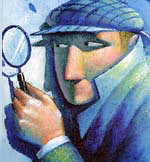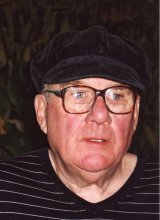
|
|
||||
|
Today is February 16th , 2026
FRAUD ALERT
QUEBECRECOMMENDATIONBooks |
HUMINSKI2nd Circuit: Vermont gadfly wrongly barred from courthouse By The Associated Press v 10.08.04 MONTPELIER, Vt. - In a decision that breaks new ground in declaring a First Amendment right for an individual to visit a courthouse, a federal appeals court ruled yesterday that Vermont officials violated the Constitution when they barred a gadfly from the courthouse in Rutland. Scott Huminski, then of Bennington, parked his van outside the building that houses the Vermont District Court in Rutland on May 24, 1997, the van plastered with signs harshly criticizing Judge Nancy Corsones, one of the judges presiding that day. One of the signs called her a "butcher of the Constitution." Corsones and other officials had earlier received letters of outrage from Huminski about her handling of a criminal case he had in Bennington County when she was presiding there. "As it is the policy of the State of Vermont to encourage and allow crimes to be committed against myself and my wife without fear of prosecution I must take the law into my own hands and initiate activities that will get national media attention," Huminski wrote in one letter. "When the smoke clears, the nation will wonder what went wrong in Vermont." Worried that Huminski might be planning violence, Corsones conferred with other courthouse officials, and another judge issued a no-trespass order against Huminski barring him from courthouses and their grounds throughout the state. That triggered the more-than-seven-year legal battle that produced yesterday's decision by the 2nd Circuit Court of Appeals in New York City. The court, ruling in Huminski v. Corsones, reinstated a lower court's injunction that ordered the Vermont court officials to lift the no-trespass order, saying the order violated Huminski's First Amendment rights to free expression. It found that Huminski had never acted out in the courts before, and it raised the suspicion that Huminski's exclusion from court property was less for security concerns than because the judges and court officials didn't want to hear what he had to say. "There are facts on the record that might raise the concern that Huminski was, at least in part, being punished for his political protests, or being prevented from continuing them," by his exclusion from court property, the court said. The appeals court said Rutland County Sheriff R.J. Elrick, Corsones and the judge who issued the no-trespass order, M. Patricia Zimmerman, were immune from paying damages. The court reasoned that judges need to be able to protect themselves from unhappy defendants. "A judge cannot be expected regularly and dispassionately to make decisions adverse to overtly hostile parties if subsequent actions to protect herself, her staff, and those in her courthouse from such hostility may result in the rigors of defending against - and even the possibility of losing - lengthy and costly litigation," the three-member circuit court panel said. But it said they were not immune from a court injunction ordering them to lift the no-trespass order against Huminski. Many of the court-access cases in the past have involved members of the press complaining that they were improperly barred from courtrooms. But the appeals court said that even if he were not working for an established media outlet, Huminski had the same right of access as a citizen. "We make no distinction in our analysis between those who can legitimately assert that they are entitled to protection under the First Amendment's press clause and those who cannot," the court said. Robert Corn-Revere, a Washington lawyer who specializes in First Amendment cases and who has handled Huminski's case, said yesterday's decision "points out that all the previous decisions really relate to members of the press and to the right of the people on trial to have the public present." A ruling that an individual has a First Amendment right to enter the courthouse merely out of curiosity or because he wants to monitor the activities of a judge he believes is unjust is "a new statement of law in that regard," Corn-Revere said. More |
LEGAL ABUSE SYNDROME |
||
Justice is a conscience, not a personal conscience but conscience of the whole of the humanity.
Those who clearly recognize the voice of their own conscience usually recognize also the voice of Justice.
Alexander Solzhenitsyn

